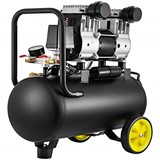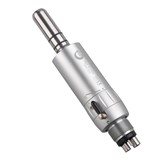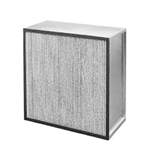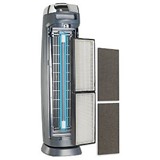The findings held true irrespective of risk factors traditionally associated with worsening or poorly controlled asthma, such as smoking, weight and use of inhaled corticosteroids.
It is known that air pollution has a role in worsening respiratory symptoms, including increased use of medication and admissions to hospital, but it has not been clear what, if any, effect long term air pollution has on the control of asthma.
The researchers base their findings on 501 adults with active asthma who completed a detailed questionnaire on respiratory health between 2003 and 2007.
The participants were taking part in a follow up to the Epidemiological study on the Genetics and Environment of Asthma (EGEA) first carried out in 1991-5. This baseline survey involved 2047 people with asthma, their partners, and first degree relatives, in five French cities.
The researchers calculated the levels of ozone (O3), nitrous oxide (NO2) and particulate matter (PM10) that each participant would have been exposed to at their home address, using data from the French Institute of the Environment.
Asthma control was measured according to symptoms, asthma attacks, and lung function or FEV1. Just under half (44%) of the 481 asthmatics for whom information on pollutant levels was available had well controlled asthma. In 29% the asthma was partially controlled; but in more than one in four (27%) symptoms were uncontrolled.
During the study period, calculated average levels of pollutants were 32 ug/m3 for nitrous ozide, 46 ug/m3 for ozone, and 21 ug/m3 for particulate matter.
Levels of ozone and particulate matter were strongly associated with poorer asthma control, with long term exposure to ozone conferring a 69% increased risk of uncontrolled asthma and particulate matter increasing the risk by 35%.
Both pollutants were associated with each of the three measures used to assess asthma control. Women and older people were more likely to have poorly controlled asthma.
"Our results indicate that both ambient O3 and PM10 concentrations jeopardise asthma control in adults," conclude the authors, adding: "The results are robust."












